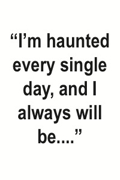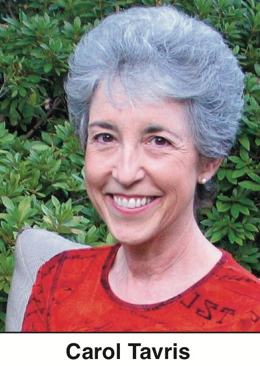Rascals case in brief
In the beginning, in 1989, more than 90 children at the Little Rascals Day Care Center in Edenton, North Carolina, accused a total of 20 adults with 429 instances of sexual abuse over a three-year period. It may have all begun with one parent’s complaint about punishment given her child.
Among the alleged perpetrators: the sheriff and mayor. But prosecutors would charge only Robin Byrum, Darlene Harris, Elizabeth “Betsy” Kelly, Robert “Bob” Kelly, Willard Scott Privott, Shelley Stone and Dawn Wilson – the Edenton 7.
Along with sodomy and beatings, allegations included a baby killed with a handgun, a child being hung upside down from a tree and being set on fire and countless other fantastic incidents involving spaceships, hot air balloons, pirate ships and trained sharks.
By the time prosecutors dropped the last charges in 1997, Little Rascals had become North Carolina’s longest and most costly criminal trial. Prosecutors kept defendants jailed in hopes at least one would turn against their supposed co-conspirators. Remarkably, none did. Another shameful record: Five defendants had to wait longer to face their accusers in court than anyone else in North Carolina history.
Between 1991 and 1997, Ofra Bikel produced three extraordinary episodes on the Little Rascals case for the PBS series “Frontline.” Although “Innocence Lost” did not deter prosecutors, it exposed their tactics and fostered nationwide skepticism and dismay.
With each passing year, the absurdity of the Little Rascals charges has become more obvious. But no admission of error has ever come from prosecutors, police, interviewers or parents. This site is devoted to the issues raised by this case.
On Facebook
Click for earlier Facebook posts archived on this site
Click to go to
Today’s random selection from the Little Rascals Day Care archives….
Click for earlier Facebook posts archived on this site
Click to go to
Today’s random selection from the Little Rascals Day Care archives….
‘You believe a dozen kids just made up lies?’
Jan. 2, 2012
Next to “Why are you doing this?” the question I’m most often asked about Little Rascals is, “Since the trial, what has happened with the kids?”
For those alleged child-victims who testified in day-care abuse cases, the need to forget, to deny and to stay silent must be strong indeed. Who wants to believe they were so misused by their parents, not to mention by therapists and prosecutors? Who can look unblinkingly at the grotesque truth and take it public? For many, given the well-documented power of suggestibility, it may simply be impossible.
One exception was Kyle Zirpolo, who came forward in 2005 to apologize for his role in the McMartin pre-school case.
 Last week, on the chance that an Edenton child might be ready to break ranks, I took out classified ads in the daily Elizabeth City Advance and the weekly Chowan Herald with this message:
Last week, on the chance that an Edenton child might be ready to break ranks, I took out classified ads in the daily Elizabeth City Advance and the weekly Chowan Herald with this message:
“If you were a child or parent involved in the Little Rascals Day Care case of the early 1990s, I’d like to hear from you….”
Thursday night I received a call from a woman who credibly identified herself as one of those children. She wouldn’t give her name. She is 26 now, no longer living in Edenton, and she was not happy to see the ad. I felt obliged to tell her at the outset that I considered the defendants wrongly accused. Here’s an edited version of her response:
“It’s sad that you and others believe that. Here it is almost 2012, and I’m still opening up the paper and seeing crap like this (ad). It’s either that, or another bullshit book about our ‘witch hunt.’ And I know they study us and McMartin and Fells Acres in different colleges.
“I’m haunted every single day, and I always will be, so long as those bastards are out there, getting to go about their business. I have a lot of emotions – hypervigilance, anger that I had to go through all that badgering (by the defense). My husband put away my files on the case because it bothered me so much.
“I remember vividly what happened, and I’ve told therapists. You believe a dozen little kids just got together and made up lies? There was physical evidence, things they couldn’t put on TV. The whole situation was just crap.”
Before we hung up, she said she would consider sending me case materials that I would find persuasive. I appreciate her call and hope to hear from her again.
When imaginary crime leads to real punishment
 Aug. 20, 2015
Aug. 20, 2015
“In the mid-1980s, a friend of mine testified on behalf of an elementary-school teacher who had been accused of being a pedophile.
“A child had told his mother that the teacher had taught them about ‘boobies and dicks’ and had drawn a picture on the blackboard that sounded suspiciously to the mother like an image of an ejaculating penis.
“The police had raced to the classroom and confiscated the damning evidence: several copies of ‘Moby-Dick.’ What the teacher had drawn was a whale and its spout.
“Looking back, we can see that the only boobies involved in this case were the adults. But whenever we are in the midst of a moral panic, as we were in the 1980s, we feel that our alarm is reasonable and that punitive solutions are appropriate.
“Dicks? That child knew the word ‘dicks’? Cancel sex ed! Run that teacher out of town!…”
– From “A Very Model Moral Panic” by Carol Tavris in the Wall Street Journal (Aug. 7)
Therapist, prosecutor worked 4-year-old as tag team
Feb. 6, 2012
Michele L. Zimmerman, now associate professor emeritus of psychiatric nursing at Old Dominion University, was one of four therapists who collaborated with prosecutors in interviewing Bob Kelly’s supposed victims.
Their teamwork is obvious in this clumsily coercive set-up by Zimmerman and District Attorney H.P. Williams Jr. (cited by Dr. Moisy Shopper, a St. Louis psychiatrist who reviewed interview tapes for the defense):
Zimmerman to 4-year-old boy: “Mr. Williams needs to know what he (Kelly) did to you to keep him in jail.”
Williams: “I’m in charge of the police. I decide who goes to jail.”
Last week I asked Zimmerman two questions: Do you still believe the Little Rascals defendants were guilty? Were the children actually abused?
Her response:
“Patient confidentiality laws do not permit me to comment on this case, as the therapist-client privilege still exists. It is not my role to comment on the defendants’ guilt or innocence, as that is the charge for the finder of fact.”
In fact, Zimmerman did comment publicly at least once in the aftermath of Kelly’s conviction: “There are people in Edenton who are still mad at one another because Person A did not tell Person B about the abuse.”
A final question, Ms. Zimmerman: What if Person A simply had nothing to tell?
How hard it was to say, ‘Boy, was I wrong’
 Aug. 10, 2012
Aug. 10, 2012
Carol Tavris:
“After the McMartin trial in 1986, I wrote an article for the Los Angeles Times about research that had been done on how to interview children in sex abuse cases. Evidence at the time suggested that sometimes you have to ask children leading questions or they will not tell you they have been molested.
“For example, if you interviewed a child after a genital examination and you asked her just to tell what the doctor did, almost no child would volunteer that the doctor touched her genitals. But if you asked a leading question, such as, ‘The doctor touched your private parts, didn’t he?’ the children would say ‘yes.’ The L.A. Times headlined this article, ‘Do Children Lie? Not About This.’
“Of course that was preposterous. Of course children lie ‘about this’ and lots of other things. But my essay, although based on research at the time, helped support the child advocates who were on a rampage against child molesters, and who were running around saying ‘children never lie’ and selling bumper stickers that said ‘Believe the Children.’’ I didn’t foresee that prosecutors and therapists would use these same studies to coerce the hell out of kids.
“When I think of my own embarrassment about that little article, and how hard it was to say, ‘Boy, was I wrong about that research,’ I realize how difficult it must be for all those ‘believe the children’ people to acknowledge they were wrong, too. In fact, most of them haven’t. They are more entrenched than ever in their pernicious beliefs.”
– From “The Measure of a Woman: An Interview with Social Scientist Carol Tavris”
in Skeptic magazine (Feb. 9, 2011)











0 CommentsComment on Facebook